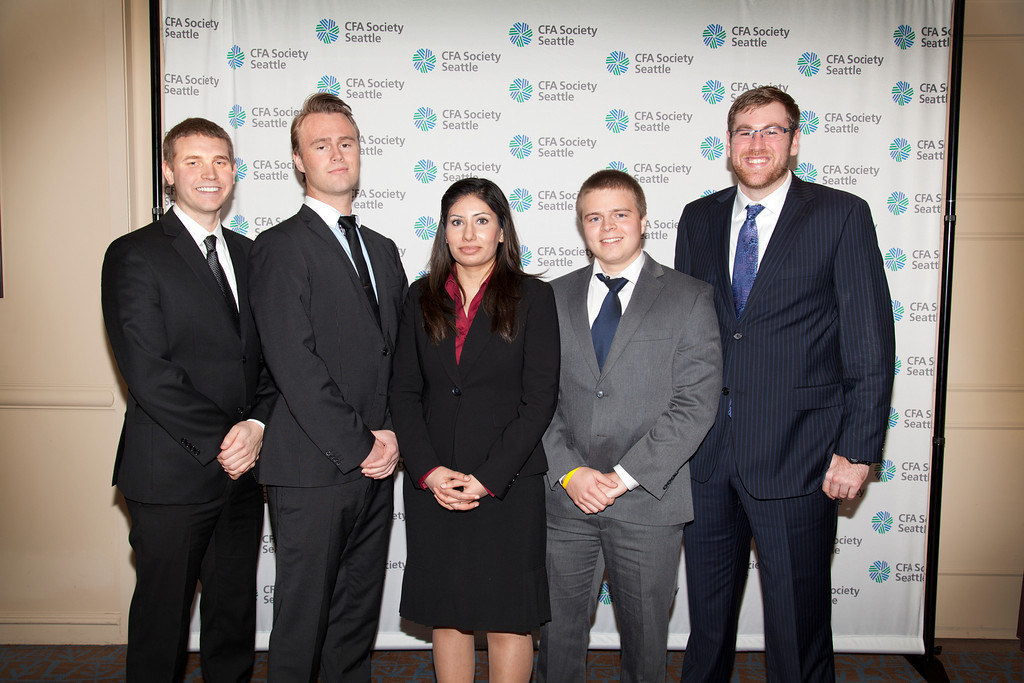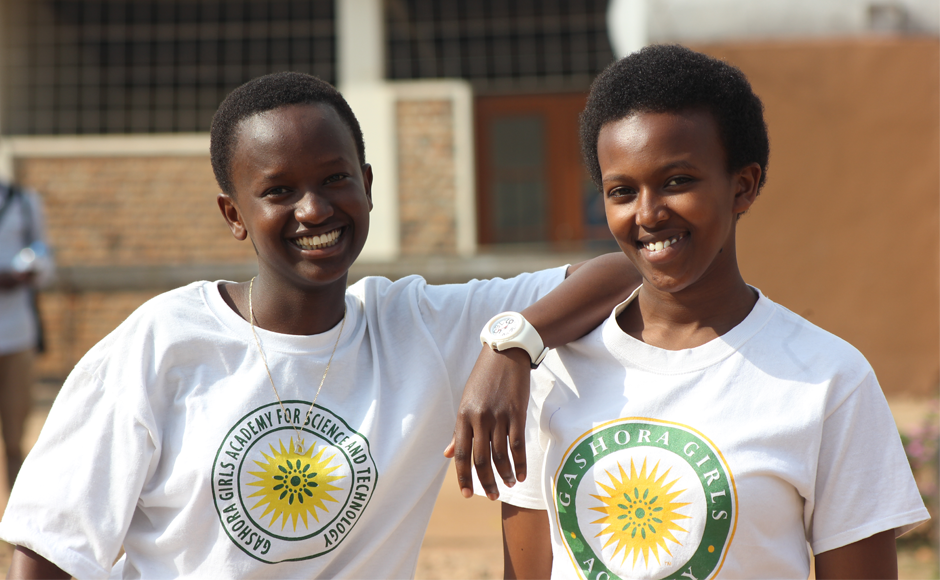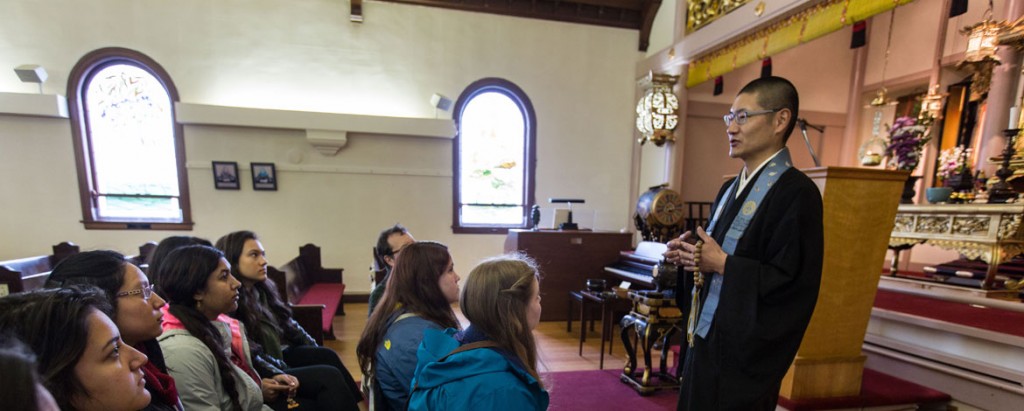Page 165 • (1,790 results in 0.025 seconds)
-

What are you reading this summer? Join the ‘Full Campus Read’ Patty and President Tom Krise are participating in the Common Reading Program. Are you? The PLU community will be reading ‘Into the Beautiful North’ this summer as part of the Common Reading Program By…
– way for students to encounter college expectations, even before school starts. “The Common Reading Program offers incoming students a sneak-peek of what to expect – and what is expected of them – when it comes to their college education,” Baillon said. “Community, critical thinking and literacy are the core goals of the First-Year Experience Program, and the Common Reading Program provides a shared experience that allows students to tap into all three,” said Amy Stewart-Mailhiot, assistant
-

MSF Team’s Stock Rises at Major Financial Competitions PLU’s CFA Challenge team at the local competition in Seattle (which it won!). From left: Kirk Swanson, Tobias Kornberg, Raji Kaur, Kristoffer Dahle, Evan Turner. (Photo: CFA Seattle.) By Sandy Deneau Dunham PLU Marketing & Communications PLU Master of…
the CFA challenges, students work in teams to research and analyze a publicly traded stock. Each team produces a report on its assigned stock with a buy, sell or hold recommendation and then presents and defends its thesis to a panel of industry veterans. It’s a challenge perfectly suited to PLU’s MSF, which is jointly offered by faculty from Finance, Economics, Accounting and Mathematics to present a cross-disciplinary education that uniquely prepares graduates to excel in financial careers by
-

Free Public Debate Sept. 21 Addresses U.S. Intervention in Global Genocides TACOMA, Wash. (Aug. 28, 2015)—During a two-day visit to Pacific Lutheran University in September, four of Rwanda’s best young debaters will immerse themselves in campus life—and present a moving, enlightening evening of personal storytelling…
is sponsored by PLU’s Holocaust and Genocide Studies minor, which includes the Kurt Mayer Endowed Chair in Holocaust Studies and the annual Powell-Heller Conference for Holocaust Education. (In Fall 2014, PLU became one of only a handful of universities nationwide to offer a minor in Holocaust and Genocide Studies.) The debaters’ visit follows PLU’s October 2014 standing-room-only screening of Sweet Dreams, a documentary about Rwandan women working to rebuild their lives in the wake of the 1994
-

University Named a College of Distinction and Ranked No. 14 in the West TACOMA, Wash. (Sept. 9, 2015)—The accolades continue to amass for Pacific Lutheran University, which has been honored as a College of Distinction for 2015-16 and ranked No. 14 in the West on…
such factors as the school’s first-year experience, general education program, experiential components of the curriculum, the strategic plan and alumni success and satisfaction. At PLU, Royce-Davis said, all of those factors tie together—purposefully. “The related engagement of faculty, staff and students that occurs at PLU is unusual in its scope and depth and is exemplified by the number of themed residential learning communities, such as the Creative Expression and Women’s Empowerment and
-

TACOMA, WASH. (Nov. 10, 2015)- Throughout the week of Nov. 8-14 Pacific Lutheran University is hosting a trio of events celebrating and resourcing veterans and military service members. On Wednesday morning, the university will host a Veterans Day Celebration. On Saturday morning, it will host…
services, education benefits, employment opportunities, post-traumatic stress disorder, housing and a number of other subjects of concern to many local veterans. There will also be a number of representatives on hand to offer self-care and veteran care resources to spouses and dependent children of veterans. The fair will take place from 8 a.m. to 12 p.m. in the Anderson University Center and is co-sponsored by the Tacoma Alumnae Chapter of Delta Sigma Theta, Inc. Social Action Committee. Admission to
-

TACOMA, WASH. (April 25, 2016)- Erik Hammerstrom, assistant professor of East Asian and comparative religions, teaches Pacific Lutheran University students the fundamentals of Buddhism from the shores of Honolulu, Hawaii, to the streets of Chengdu, China. Now, the course has arrived in a more familiar…
registered for this course it was planned to be entirely off campus. While the course ultimately was not placed with TIES, Hammerstrom took advantage of the change to hyper-localize global education. “For me, Tacoma is a place with a history and a diversity that is us, we are Tacoma,” Hammerstrom said, “even students who are coming to Tacoma from outside the state or outside the Puget Sound Region, they need to understand that it’s not just the campus in Parkland.” Tacoma’s religious diversity comes from
-

TACOMA, WASH. (May 2, 2016)- Forty years of nursing experience is not on the usual résumé for politicians, but that did not stop Rosa Franklin ’74 from running for office. Franklin hasn’t been concerned with what is usual. She’s concerned with bringing people together to…
people,” Franklin said. “It’s more of a family and you know each other.” Her formal education began as a nurse in her home state of South Carolina. She then moved to a military base in Germany with her husband and started a family. Eventually, her husband’s military career relocated the family to Tacoma where Franklin has remained ever since. “My first job was in New Jersey, and then New York, then overseas. I made it around the world and ended up here,” she said, laughing. Rosa Franklin '74 is shown
-

TACOMA, WASH. (Dec. 2, 2016)- Pacific Lutheran University junior Austin Beiermann struggled to find confidence as a political activist. Beiermann’s sense of political engagement heightened after Bernie Sanders announced his candidacy for president. As the election cycle progressed, he began attending monthly dinners hosted by…
awesome outlet because I have not had that at home,” Beiermann said. Beiermann insisted young people have nothing to fear when engaging in politics. He said they can promote the most change by confidently participating. The key to confidence, Beiermann said, is education. “When I started, I didn’t know anything. But I went there, I showed up, and I said, ‘I want to learn,’” he said. “Even if you know nothing about politics…show up. Half the battle is showing up, the other half is learning.” Read
-

TACOMA, WASH. (Jan. 29, 2018) — Two episodes of a new four-part MediaLab documentary project are set to premiere next month in Seattle. The series, titled “A World of Difference,” explores issues of diversity, including gender, race, immigration and social class. The first two segments,…
series, titled “A World of Difference,” explores issues of diversity, including gender, race, immigration and social class. The first two segments, about immigration and gender, will screen at 4 p.m. on Feb. 17 at the Seattle Central Public Library, 1000 Fourth Ave. in Seattle. The other two portions of the series will premiere in Tacoma later this spring. “A World of Difference” was jointly sponsored and supported by PLU’s School of Arts and Communication, the Wang Center for Global Education and
-

TACOMA, WASH. (May 8, 2018) — Three Pacific Lutheran University student-media organizations have received a total of four Emmy Award nominations from the National Academy of Television Arts and Sciences — Northwest Chapter. MediaLab — which was nominated twice for its four-part documentary series “A…
year. Check out worldofdifferenceseries.com for more information about the MediaLab documentary. Visit www.plu.edu/medialab to learn more about MediaLab, the applied research and multimedia program. Generous funding helped make “A World of Difference” and “More Than a Mission” possible. The former received funds from PLU’s Wang Center for Global Education and PLU’s Diversity, Justice, and Sustainability (DJS) Fund. The latter also received funds from PLU’s DJS Fund, as well as the Center for
Do you have any feedback for us? If so, feel free to use our Feedback Form.


